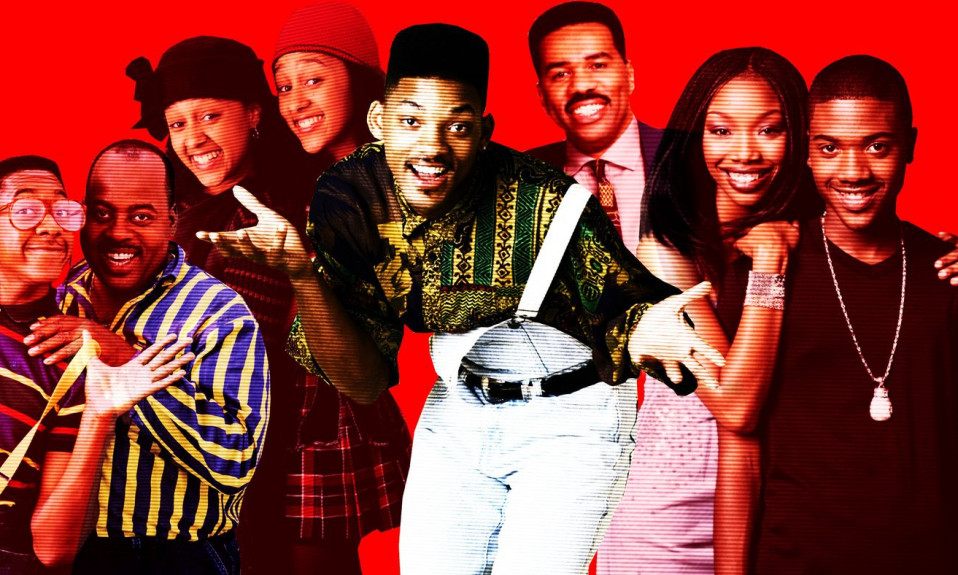If you google the term “Black sitcom”, the majority of results will be from 20-40 years ago. When we hear the phrase, there is a common batch of shows we all think of: ‘The Cosby Show’, ‘The Jefferson’s’, ‘Family Matters’, ‘Good Times’, ‘Living Single’, ‘Sanford & Son’ and other classics. Although there are modern examples, it’s the classics that remain in our collective consciousness. And for good reason— They were trailblazers. They stood out. Each story was unique: Black family, living in the projects, father and son running a junkyard, a dry cleaner and his wife get rich, a Black doctor and lawyer raising five kids in Brooklyn, a house full of Black women as roommates, courting success and love— in that order.
Starting in the 1960s, there were only TWO Black sitcoms in existence: ‘The Bill Cosby Show’ and ‘Julia’. In contrast at the height of Black sitcoms— the 1990s— over 50 Black-led comedies were on the air. But every year since the new millennium began, there have been fewer and fewer Black sitcoms airing (there are currently ten listed on Wikipedia), and only a handful streaming, even though the African American population has grown each year (from around 30M to the current 44M). With all the talk of inclusion, the centuries-long battle for equality and civil rights, somehow there seems to be fewer Black stories being told than when the fight began. And the ones we do have don’t seem any different from their White counterparts.
There’s a generic template that seems to have been applied to American sitcoms across the board. Take the show ‘Kenan’ starring Kenan Thompson of ‘Goodburger’, ‘Kenan & Kel’, and ‘Saturday Night Live’ fame: You could swap the cast of his show about a widower raising his two daughters with a White family, and nothing would change. There’s nothing specific to the Black experience or Black culture built-in. Many so-called Black sitcoms are just repackaged White shows, with nothing but their ethnicity changed. Much like the famous “Black Barbie” fiasco in the 1980s, they merely added brown skin to a White mold. There are a few exceptions, shows like ‘Insecure’, ‘Black-ish’, and ‘The Carmichael Show’, but for the most part, the Black sitcom as we knew it has died.
But is that a bad thing? As we are wont to say, Black people, Black culture, and the Black community are not monoliths. We’ve adapted to a new standard of rights, wealth, and a rapidly changing place in the world. What we need to feel heard, what we find to be funny and relatable, has changed. And the scope of Black culture has changed. Usually, the word gentrification refers to White families and businesses claiming what was previously “Black” territory. But in many ways, Black culture has gentrified America itself. Perhaps even the world as a whole. For example: Having a voluptuous figure, singing with “soul”, urban wear and athleisure— all of which had been previously labelled “Black”, are now common in every aspect of American culture. In many ways we dominate the athletic world, as well as entertainment and pop culture (think of the origins of many meme and slang terms). So, if Black culture is slowly becoming the dominant culture, perhaps we don’t need niche shows that cater to the people we used to be. Maybe that’s a tradition that served its purpose, and it’s time to let go. Maybe we’ve outgrown that need, and new ways to express ourselves are just around the corner. Do I still love to go back and watch classic Black sitcoms? Definitely. I wish there was a new season of ‘Boondocks’ or ‘A Different World’? Sure. But I also know that when we are craning our necks at the past, we very often miss seeing the future. So I’m taking off my “love goggles” and looking at what’s to come, not clinging to what used to be. And maybe that’s the point.
Also Read: BLACK to the Future: The Rise of AfroFuturism











